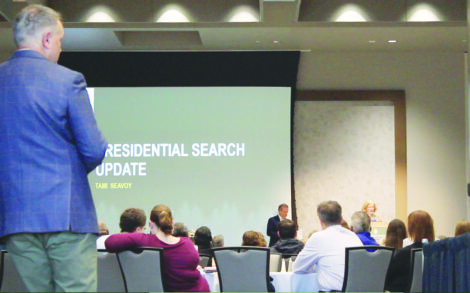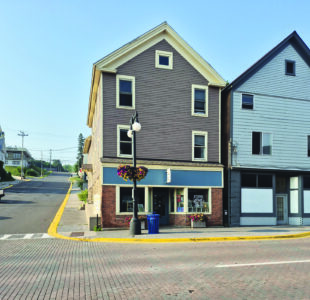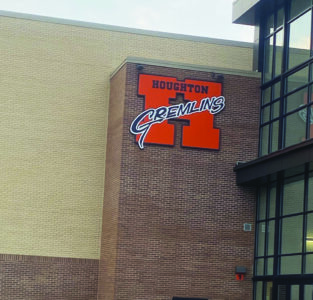MI law: Counties are not responsible for zoning
Keweenaw to host meeting at 6 tonight
KEWEENAW COUNTY — A public hearing scheduled for 6 p.m. today at Horizons School, in Mohawk, is for the Board of Commissioners to hear from the local county residents their views on zoning and zoning ordinances.
For a number of years, the county has been placed in the unique position of having to engage in the business of zoning and zoning ordinances for four of its five townships, because the township boards, with the exception of Eagle Harbor, have refused the obligation, instead leaving it to the county.
For the county, the task has become increasingly difficult, particularly because of the diverse economic base of each of the townships. Allouez Township, adjacent to the Houghton County line for example, has seen significant gains in manufacturing, where former mining surface plants are being converted to manufacturing within the zoning ordinance, as the county’s Blueprint for Tomorrow states. This change, the document says, will allow new business opportunities. With access to clean electricity, natural gas and high-speed internet, there is potential to bring much needed full-time employment to the township. In Allouez Township is the village of Ahmeek, which has its own village council, but relies on the county for zoning enforcement.
Of the five townships, Allouez has the majority of the county’s population, approximately 1,570 residents, while on the opposite end of the spectrum as well as the county, Sherman Township numbers just 67 residents.
During the regular July meeting of the BOC, Don Piche, Board Chairman, said the townships should creating and write their own ordinances based on their particular needs and those of their residents.
“Allouez Township’s needs are different from Grant Township’s or Sherman Township’s,” Piche said. “But some people don’t want any zoning at all, none of the townships except Eagle Harbor Township want the responsibility, and without it (zoning), it’s going to be the Wild West out there.”
Keweenaw County Planning Commission Trustee and 55-year county resident Harvey Desnick agrees with Piche.
“With the diverse nature of our county, one size does not fit all,” he said. “We are a very rural community. We are not a metro — we are not urbanized in a modern day sense. The only urban areas we actually have are Mohawk and Allouez, where 70-plus percent of the population lives.”
Here is where things begin to get complicated for the county, however. The Blueprint for Tomorrow states:
“Population centers in Keweenaw County include the towns of Allouez, Ahmeek, Mohawk and Fulton in Allouez Township; Eagle River in Houghton Township; Eagle Harbor in Eagle Harbor Township; Copper Harbor and Lac La Belle in Grant Township and Gay in Sherman Township.”
According to the Michigan Townships Association, Michigan does not recognize towns as a seat of government.
“Michigan doesn’t have towns–it has townships, cities and villages, with townships governing 96% of Michigan’s land area outside of cities,” states the MTA. “In fact, in Michigan, if you don’t live in a city (or village), you live in a township.”
The Michigan Zoning Enabling Act states that the zoning jurisdiction of a county does not include the areas subject to a township zoning ordinance. In fact, says Michigan State University, under Michigan law, a county government does not have general ordinance making authority.
“As a general rule,” states MSU’s article, County Government Powers are Very Limited, “counties cannot adopt ordinances. Municipalities have more authority, powers than counties, and can adopt police power ordinances.”
In Michigan, local governments do not have authority to do anything unless the state legislature delegates that authority, MSU states. Cities and villages have the broadest delegation of authority, townships have less, and counties have the least. With authority comes restrictions – such as not being able to do what has not been delegated. Historically, a county was thought of as an extension of state government – not a local government. Local governments being the townships, villages and cities within the counties. As a result, for example, a county does not have general ordinance-making powers.





